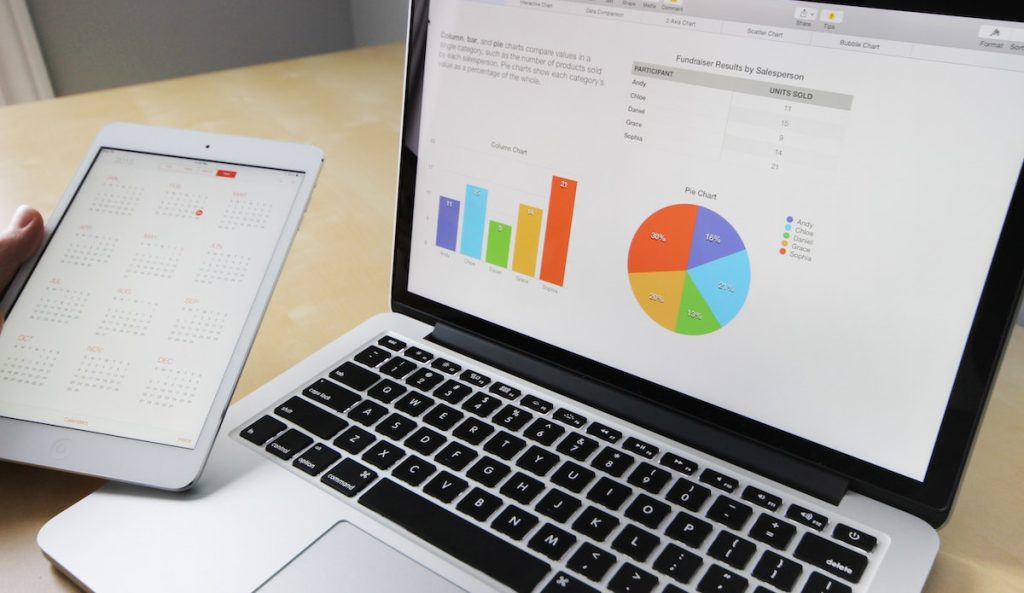These days, one of the top buzzwords used by companies is analytics. Thanks to newer technological innovations, analytics has become more important than ever. Nowadays, data is vital; it can even make or break a business. As a result, this makes business analytics one of the most crucial elements in helping companies toward success.
But what is business analytics? Business analytics refers to using statistical and quantitative methods, data visualization, and other analytical tools to help businesses make more informed decisions. It involves analyzing data related to a company’s operations and competitors to identify trends and patterns that can help improve business performance. Business analytics can be used in various business areas, including finance, marketing, operations, and human resources.
So, is business analytics important in today’s fast-paced world? With the abundance of data available to businesses today, those that can effectively analyze and leverage that data to make better decisions can have a significant competitive advantage. With business analytical tools, you can have a more profound understanding of primary and secondary data emerging from your activities, helping your business become more efficient.
But what if you don’t have enough know-how about business analytics? Think about opting for programs or courses like UNCW online degrees in data analytics. Such programs can equip you with the skills to inform business tactics, recommendations, and decisions.
Still not sure why business analytics is essential? Here are some reasons why business analytics is vital in today’s world.
Table of Contents
Keep An Eye On The Competition

One of the most surprising reasons for business analytics is that it helps you keep an eye on your competitors. After all, keeping an eye on competitors can help your business identify areas for improvement, develop effective marketing strategies, and stay ahead of the curve in a rapidly changing business environment.
But how can business analytics help you monitor your competitors? Business analytics lets you gather data and insights on your competitors’ products, pricing, marketing strategies, and overall market position. This information can help your business understand its competitors’ strengths and weaknesses, identify opportunities for differentiation, and make informed decisions about your business strategy.
It can also help you compare your business’s performance to that of your competitors across key metrics such as sales, market share, and customer satisfaction. This allows you to identify areas where your business is falling behind and take action to improve. Besides that, business analytics allows you to anticipate your competitors’ moves and predict market trends.
It also helps your business track its competitors’ social media activity and online presence. This can provide insights into your competitors’ marketing strategy, customer engagement, and reputation management.
Improves Customer Experience

Do you know business analytics can offer valuable insights that help you improve your customer experience, leading to higher customer satisfaction and loyalty? With the help of business analytics, your business can personalize the customer experience by offering tailored recommendations and customized promotions based on individual customer behavior.
Moreover, you can gain insights into your customers’ preferences by analyzing customer data such as purchase history, browsing behavior, and feedback. As a result, you can use this knowledge to tailor products and services to meet your customers’ needs more effectively.
Business analytics allows you to evaluate historical data, helping you predict customer behavior and anticipate their needs. This allows you to improve your customer service and support and develop targeted marketing strategies.
Besides that, business analytics allows you to identify areas for improvement in their products and services, helping you design products that meet customer preferences. With the help of real-time analytics, you can also monitor customer behavior and respond quickly to issues or complaints, improving customer satisfaction.
Better Product Management Through Business Analytics

Wondering why effective product management is crucial? Product management is an essential function for businesses because it helps ensure that the products and services they offer meet the needs of their customers and are competitive in the marketplace. Successful product management can increase revenue growth by developing products that meet customers’ needs and offer a unique value proposition.
The good news is business analytics can help you improve product management significantly. Not sure how business analytics does that? Here’s how business analytics improves product management:
- Inventory management: Business analytics can help you optimize inventory management by analyzing sales data, demand forecasts, and supply chain performance. This can help your business reduce inventory costs, improve cash flow, and avoid stockouts or overstocking.
- Product launch and marketing can help you develop effective product and marketing strategies. By analyzing market trends, customer behavior, and competitor activity, your company can identify the most effective channels and messaging to reach its target audience.
Informed Decision-making

One of the best reasons business analytics is crucial is that it helps make smarter and more informed decisions. After all, business analytics provides data-driven insights that enable decision-makers to make informed decisions. By analyzing large volumes of data, you can identify patterns and trends that might be overlooked, allowing you to make better-informed decisions.
Not just that, business analytics can help decision-makers visualize data in intuitive dashboards and reports, making it easier to understand and act on insights. It can also help you manage costs and risks by identifying opportunities for cost reduction, leading to better decision-making. But that’s not all! Business analytics can provide real-time monitoring of key business metrics, enabling you to respond quickly to market conditions, customer behavior, or internal performance changes.
Identify Fraudulent Transactions

In any industry, fraud can have a significant financial impact. As a result, it’s vital for businesses and organizations to use business analytics to uncover trends that indicate suspicious behavior and reduce fraud. But how can business analytics identify fraudulent transactions? Here’s how business analytics can help you reduce fraud:
- Anomaly detection: Business analytics can use statistical models to detect unusual patterns in transaction data, such as transactions that fall outside normal ranges of time, frequency, or amount. This can help identify potential fraud or other suspicious activity.
- Pattern recognition: It can use machine learning algorithms to recognize patterns of fraudulent behavior in transaction data. By training models on historical data, you can identify new instances of fraud and take action to prevent it.
- Network analysis: Business analytics can help identify fraudulent transactions by analyzing relationships between transactions and other data points, such as IP addresses, devices, and geographic locations. This can help your company identify patterns of behavior that suggest fraudulent activity.
Final Thoughts
If you’re confused about why business analytics is essential today, check out these reasons. With the help of business analytics, you can improve your customers’ experience. Besides that, it allows you to make better decisions and improve product management. Trust us; business analytics can act as a game-changer for your business!

Alex is fascinated with “understanding” people. It’s actually what drives everything he does. He believes in a thoughtful exploration of how you shape your thoughts, experience of the world.



